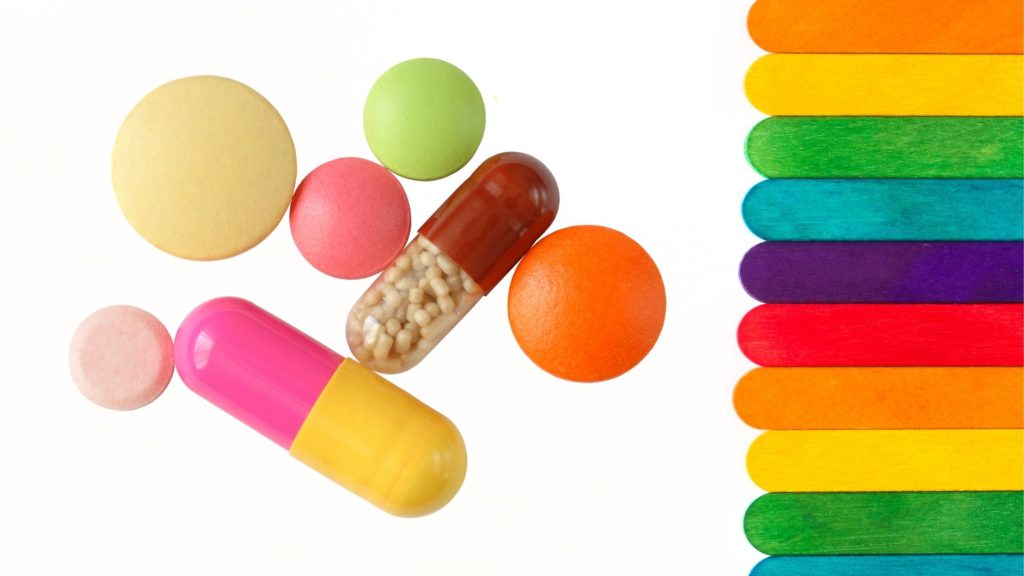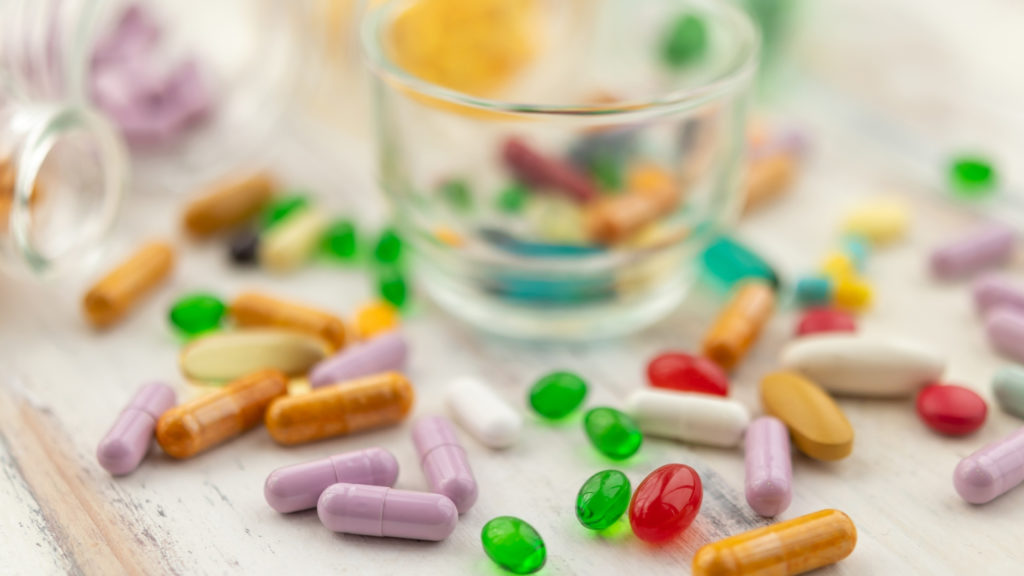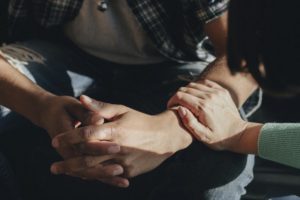Addiction rates are 2 to 4 times higher in the LGBTQ community than in the general population. And while most studies about LGBTQ substance abuse focus on alcohol, tobacco, and illicit drugs, more and more are looking at prescription drug misuse within the community.
Prescription drug misuse means taking medicine in a different way than was prescribed. This could mean taking a larger dose, taking medicine prescribed for someone else, or using the medicine for an unintended purpose. While these studies are still in their infancy, initial results show that prescription drug misuse is already becoming a serious issue in the LGBTQ community.
Commonly Abused Prescription Drugs
Initial findings suggest that opioids like OxyContin and Percocet, and benzodiazepines like Xanax and Valium are among the most commonly misused prescription drugs.
Opioids
Sold under brand names like OxyContin and Percocet, opioids are a family of drugs whose primary medical use is acute pain relief. However, they’re also prescribed for chronic pain, cough, and diarrhea control. People abuse them because they produce euphoria and a calm, relaxed high. Chronic use and abuse can lead to physical and psychological dependence.
Benzodiazepines
These drugs are prescribed as short-term solutions for generalized anxiety disorder, insomnia, and alcohol withdrawal.
Sold under brand names like Valium, Xanax, and Klonopin, they’re generally considered to have a low potential for abuse and dependency. With that said, about 17% of people with a Xanax prescription misuse them. Long-term use can lead to addiction and severe withdrawal symptoms.
Differences Between LGBTQ and Heterosexual Prescription Drug Misuse

As with other kinds of substance abuse, the LGBTQ population is disproportionally represented when it comes to prescription drug misuse. For instance, a 2018 study showed that lesbians, gays, and bisexuals are more likely than heterosexuals to misuse prescription opioids.
There’s also evidence that LGBTQ people may be more frequently exposed to opioids in medical settings. One study found that 58% of LGBTQ respondents had been prescribed an opioid, compared to 35% of heterosexual respondents.
There are several possible reasons for this trend.
One is the rising number of gender affirmation surgeries. As with most invasive surgeries, opioids are prescribed for post-surgical pain management. Opioid dependence is correlated with the frequency of opioid exposure. So transgender patients are at an increased risk of developing opioid dependence following each surgery.
Additionally, transgender people and older LGBTQ people with HIV often experience chronic pain, with up to 20% taking opioid-based pain medication. This puts them at an increased risk for opioid use disorder.
Unfortunately, the problem is getting worse. A 2017 study reported that 6.4% of lesbians, gays, and bisexuals aged 26 or older had misused prescription opioids. That figure rose to 9% in 2018.LGBTQ youth are also vulnerable, with studies showing that sexual minority youth try opioids at younger ages and remain dependent longer than their straight peers.
Why the Difference?
The Minority Stress Model and experiences of childhood emotional abuse explain much of the prescription drug misuse in the LGBTQ community.
The Minority Stress Model explains how LGBTQ people face ongoing discrimination, marginalization, and victimization as a result of their identity, often from a young age. Over time, these experiences can lead to internalized feelings of self-hate, worthlessness, and isolation.
Such feelings can interfere with their coping skills, emotional regulation, and ability to form healthy relationships. In response, some may turn to prescription drugs and other substances to manage these difficult emotions and self-soothe.
Childhood emotional abuse is another factor contributing to substance misuse in the LGBTQ community. LGBTQ people experience significantly higher rates of emotional abuse in childhood than their heterosexual peers, leading to lasting impacts on self-esteem, resilience, and mental health.
These early experiences can make individuals more prone to anxiety, depression, and low self-worth, often resulting in a need to numb emotional pain. As a result, many LGBTQ people begin using prescription drugs like Xanax at an early age to cope.
Treatment for Prescription Drug Misuse at La Fuente Hollywood Treatment Center
LGBTQ people struggling with prescription drug addiction need affirming, specialized treatment that addresses their unique challenges. Fortunately, there are dedicated resources.
For over 20 years, La Fuente Hollywood Treatment Center has led the way in LGBTQ-affirmative addiction care. If you or a loved one is battling prescription drug addiction, now is the time to get help.
Contact us and let’s start your recovery process together.



